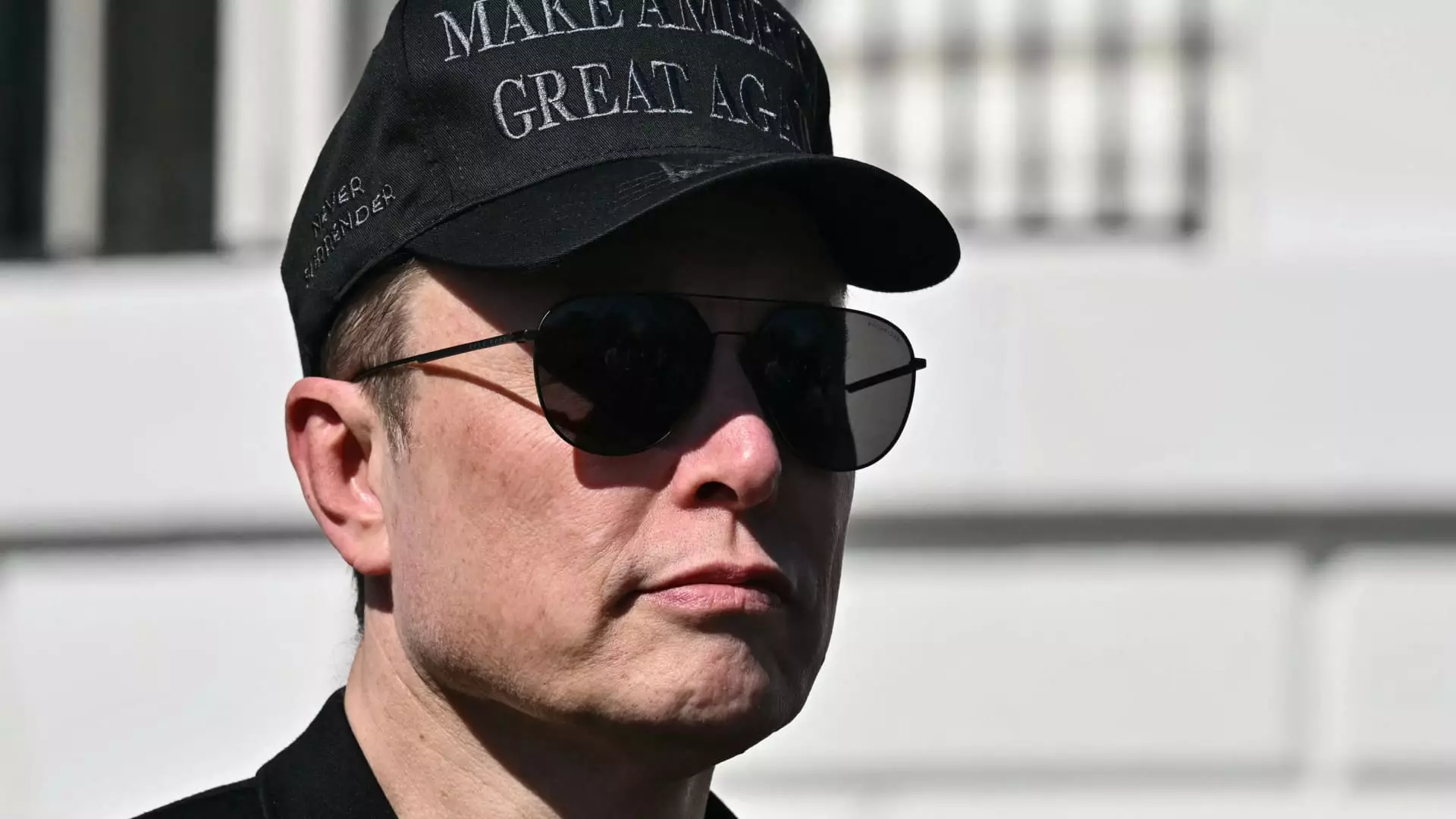Elon Musk’s recent confrontations with Delaware’s corporate law have birthed a significant and unsettling chapter in the evolution of corporate governance. The discourse surrounding Musk’s $56 billion pay package being deemed illegally granted by a Delaware judge exposes a stark reality: we are witnessing an alarming potential shift in the balance of power between corporate boards and shareholders. By vilifying the judicial system for its rulings, Musk is not only acting in his self-interest but is rallying other corporate titans to destabilize an essential component of market regulation. His actions raise a pressing question: Are we content with a model where corporate giants can dictate the terms of governance, skewing fairness and accountability?
Corporate governance in many ways acts as the backbone of a modern economy, ensuring that those who participate in the market can do so under a framework of trust and ethical conduct. When powerful individuals leverage their financial clout to alter laws and regulations to suit their own ends, they undermine the foundation upon which effective and fair markets rest. This is not merely a local issue; it has broader implications for investors, legal scholars, and anyone who values a level playing ground in corporate governance.
The Surging Trend of Corporate Tax Flight
Following Musk’s lead, other companies like Dropbox and Walmart are vacating Delaware, fearing its purportedly activist judiciary. This corporate tax flight emanating from Delaware is more than a trend; it signifies a pronounced shift in sentiment among corporate leadership. The state, long viewed as the corporate haven due to its favorable business laws, is now under siege. The response from Delaware’s legislative assembly, particularly through Senate Bill 21 (SB 21), seems driven not only by a desire to retain corporate residents but also by the influence of affluent executives who feel empowered to reshape the legal landscape.
However, this bill raises crucial concerns about its implications for minority shareholders. While Delaware’s Senate Majority Leader Bryan Townsend touts transparency and predictability, key stakeholders such as the International Corporate Governance Network (ICGN) highlight the risks associated with reduced judicial oversight. Such a shift could mean far-reaching consequences for the everyday investor, eroding trust and paving the way for boards to make decisions hindered by conflicts of interest rather than the collective well-being of shareholders.
Activist Judges or Guilty of Misalignment?
Musk and his allies often paint judges as ‘activists’ wielding undue influence; however, this belief may reflect a deeper indictment of leadership styles within corporate governance. If decisions made by an independent judiciary infringe on personal economic interests, does it not reflect the need for a greater reassessment of boardroom dynamics? It implies a sort of cognitive dissonance where the priority lies with personal gain over collective accountability. The discontent with Delaware’s judiciary may stem from a misalignment between the expectations of corporate executives and the very purpose of governance legislation.
Moreover, the sweeping criticisms of judicial oversight serve to galvanize support from disenfranchised CEOs, echoing a narrative that stretches beyond mere economic grievances. It compels one to wonder if this wave of discontent could morph into a deeper movement advocating for weakened regulations, effectively orchestrating a transition into a state of corporate anarchy.
Political Motivation Behind Corporate Maneuvering
Musk’s public attacks on the Delaware judiciary are not simply rooted in a desire for fairness but carry notable political undercurrents. By aligning with factions that espouse anti-establishment views, executives like Musk are creating a rift within the political landscape. Such moves align with the interests of a specific elite—an elite that also happens to have the spotlight’s attention and a propensity to reshape legislative narratives to suit their needs. In this case, SB 21 may serve to placate corporate barons while simultaneously diminishing the rights of everyday investors who rely on proper checks and balances.
The allegiance to figures like Donald Trump further complicates this situation, enhancing the existing ideological divide. As the wealthy seek to redefine governance to accommodate their interests, political discourse surrounding corporate laws becomes increasingly polarized, presenting a unique challenge: how do we reconcile the needs of corporate America with the rights of ordinary shareholders?
The Erosion of Investor Trust: A Dire Consequence
One cannot overlook the broad implications of reduced judicial oversight embodied in SB 21. The relationship between companies and their shareholders must be founded on transparency and accountability. As outlined by experts from the ICGN, the erosion of investor rights could have dire consequences for long-term returns, impacting not only institutional investors but also ordinary individuals striving for financial stability through investments.
The ensuing distrust may cultivate a hazardous atmosphere, not just for passive investors but for the market at large. With significant financial interests at stake, it is imperative that regulations do not become tailored to suit the whims of the wealthiest individuals. Delaware’s traditional role as a corporate appeal must not falter in the pursuit of unprecedented corporate power that lacks oversight—a trend that could lead to a systemic failure, echoing across state lines.
The unfolding saga of corporate governance in Delaware, intensified by Elon Musk’s actions, poses an urgent dilemma: will we allow a handful of wealthy executives to dictate the foundation of our economic structure, or will we demand a system that prioritizes the rights of all stakeholders? The battle lines are drawn, and the unfolding events in Delaware may be just the beginning of a larger struggle for balance in corporate governance.

